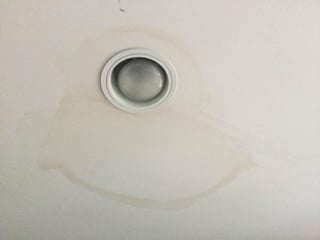- 781-659-2262
Here are some tips on how to prevent pipes from freezing in a home or condominium:
Thermostat: During a cold snap, set your thermostat at a minimum of 65 degrees. The extra few degrees will keep water in pipes moving and protect from the intrusion of a polar vortex into your walls.
Main Water Valve: Identify the location of the water shutoff in the event of a burst pipe. When water is gushing it's important to know where to go to stop it.
Insulate: OK, so this is a summer project, but if you have any work done be sure that all water pipes around the exterior of your house are insulated. This includes any crawlspace, basement, attic and exterior walls. It may be too late for this now, but make it a priority when you have insulation upgraded.
Garage: Keep garage doors closed during extremely cold weather.
Cabinets: Open cabinets, especially at night, if they hide bathroom or kitchen sinks that are up against an exterior wall. Open air from the house should circulate near those exterior walls.
Exterior Faucets: Disconnect and drain all outdoor garden hoses, faucets, showers, etc. Keep the outside faucets open to allow them to drain and for any ice to expand freely.
Basement: If you can, heat your basement during extreme cold weather.
Washing Machine: If you plan to be away from the home during a cold snap, shut off the water supply valves to the machine. Replace hoses with metal cased hoses available at most home improvement stores.
Doors: Install weather stripping at the bottom of each door to prevent cold drafts, or use an old fashioned door snake.
Lawn Sprinklers: Turn off the sprinkler system and blow compressed air through the system...this is another important fall reminder.
Drip: During extreme cold, turn kitchen and bathroom sinks to a slow drip

The first sign of a freezing pipe is reduced water flow from a faucet. Check the faucets for water flow and pressure before bed and again in the morning. In the event a pipe begins to freeze:
Use a hair dryer, electric heater, heat lamp or electric heat tape to thaw the frozen pipe
Keep the faucet open when thawing to allow water to run and drain
In the event a pipe does burst:
Shut off the main water valve
If the pipe is a hot water pipe, also shut off water from water heater
Call your plumber to repair the damaged pipes
To take this one step further, consider smart valve technology which will turn off your water even when you're not home. And get a discount on your homeowners insurance with some carriers!
We are local insurance experts serving the South Shore for over 70 years.
Click below to get a free quote for your personal or business insurance.